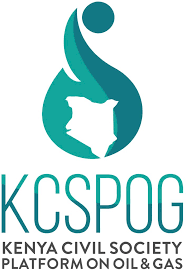Tullow discloses payments but Kenya Energy bill falls short of making mandatory disclosures
Kenya Civil Society Platform on Oil and Gas (KCSPOG) Monday 24, 2014
Nairobi, – Tullow in its released 2013 annual report available here has published all the tax, royalty
and other payments it has made to the Kenyan government across all levels. In the year ending 2013
Tullow announced that it paid a total of $22 million (approximately 1.8 Billion KES) in taxes to
the national government. This is inclusive of VAT, withholding tax on imported services and
PAYE on our employee salaries. The amount is also inclusive of $212,000 in license fees. The
total payment shows a significant increase in government revenue and indicates a level of
increased activity by the Oil Company operating in three basins in Kenya.
These disclosures come at an opportune time as Kenya is reviewing its Energy law. Indeed
Tullow in its annual report mentions the passage and Approval of Kenya’s Petroleum Legislation
as a key milestone towards moving towards production. The energy bill, which is in its Fifth draft
from the commencement of the process in 2012, lacks a framework that would create uniformity
in reporting in the nascent sector. The energy bill contains a major deficiency as it falls short of
creating a mandatory disclosure regime. While Tullow, due to EU and progressive company
requirements, has reported on a project by project basis the law is silent on compelling other
companies in country to undertake similar disclosures. A fundamental flaw is the lack of a ring
fencing mechanism this is crucial in assessing the profitability of each project site and will have
an impact in the event that the country switches to a different model of sharing revenues. In
illustration if government takes on the proposed model based on the ratio of cumulative
revenues and expenditures a project based reporting mechanism may make it easier to spot
company inefficiencies at project level that will have an effect on
government revenues. The Kenyan Energy bill 2014 must take the
opportunity to go a step further than the United
States Dodd Frank Reforms Act and the European Union’s Accounting and Transparency
Directives provisions. The Kenyan constitution provides for such enhanced transparency in
Article 71 and Article 35 on parliamentary ratification and the freedom to access such
information.
Regulation is indeed a moving target of keeping up with the company and regulators should not
only bring national legislation in vogue with practice but must be superior. While Tullow’s
disclosures are a huge leap in disclosures internationally and within the sector and they should
be lauded. The Kenya Civil Society Platform on Oil and Gas believes that prudent management of
the nation’s resources requires legislation for compulsory disclosure for all companies operating
in Kenya and should commence from the concession stage including public disclosure of all
agreements.
About KCSPOG
Kenya Civil Society Platform on Oil and Gas brings together Civil Society Organizations and
networks working around oil and gas resource management including issues of environment,
land and livelihoods to share common advocacy priorities and to coordinate our diverse and
collective views to effectively influence government policies and legislations.
Contact
For Media queries, please contact
CHARLES WANGUHU | Platform Coordinator, Kenya Civil Society Platform on Oil and
Gas. Nairobi, Kenya
| Email: charleswanguhu@gmail.com
